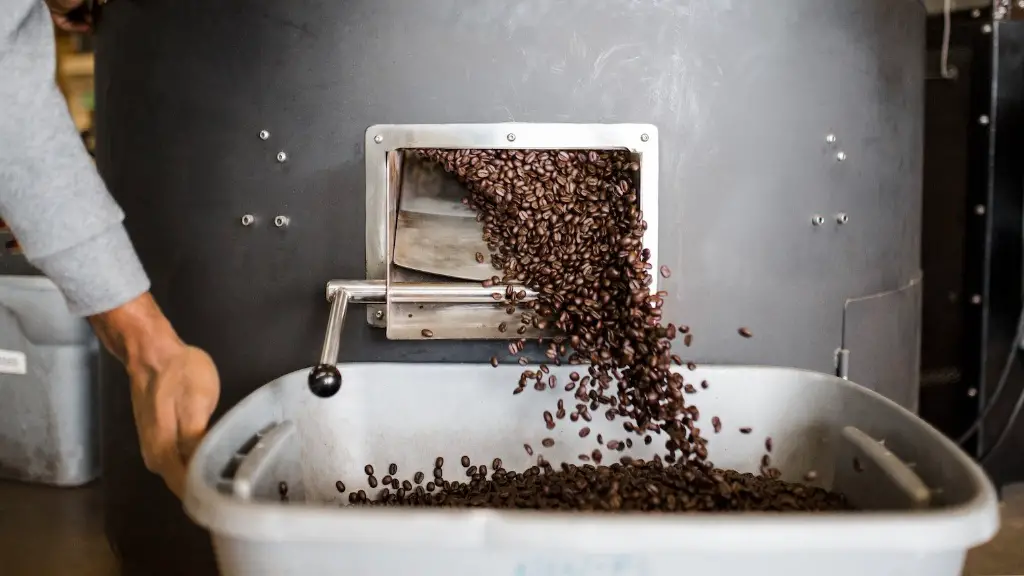What is Cough?
Cough is a common symptom of respiratory illness, which includes colds, bronchitis, and other viruses. When the lungs and airways become infected and irritated, the body starts to produce mucus, which often leads to coughing. Coughing is the body’s way of trying to expel the irritants in the air, and it can become quite painful and bothersome.
Is it Bad to Drink Coffee While Having Cough?
The answer to this question is a bit complicated. On one hand, dark roasted coffees are known to assist in drying out the mucus and clearing out the mucus in the lungs. But on the other hand, caffeinated beverages dehydrate the body, which may exacerbate the symptoms of a cough.
It is important to take into consideration the other components of coffee such as sugar and dairy, as these can also worsen cough symptoms. In addition, the caffeine in coffee can increase anxiety, stress, and irritation, which in turn may increase the intensity of the cough.
After evaluating the pros and cons of drinking coffee while having a cough, it is clear that drinking coffee should be avoided when having a cough.
How Else Can I Cope with Cough?
There are a few steps one can take to help manage their cough. The first is to stay hydrated by consuming more water, as this helps to thin out the mucus in the lungs. Additionally, humidifiers can be helpful in reducing the amount of phlegm produced, as the humidity helps to decrease the rate at which the body expels mucus.
Vapour rubs are also known to alleviate coughing symptoms, and menthol in particular maintains the muscles of the airways and reduces inflammation.
Inhaling steam can also assist in thinning out the airways, making breathing easier. This can be done by filling a bowl with hot water and leaning over it while covering your head with a towel.
Herbal teas such as green, ginger, or lemongrass tea, as well as over-the-counter cough medicines, can also provide relief.
Additional Considerations
When dealing with a cough, it is important to remember that it can take time for the symptoms to subside. If the symptoms do not improve within a few days, it is important to seek the advice from a physician to ensure the severity of the illness is not worsening.
Additionally, when having a cough it is important to maintain good hygiene by washing your hands and avoiding contact with others, as coughing can spread the virus to them
Relationship Between Coughing and Caffeine Intake
Though caffeine is shown to have some advantages in relieving certain symptoms, research has also suggested that drinking coffee too often is associated with the development of chronic coughing. This is because the caffeine affects the way some individuals clear their airways and can cause inflammation of the airways.
It has also been suggested that drinking too much coffee can lead to an increased risk of developing asthma or bronchitis. Therefore, it is important to drink coffee in moderation and be aware of other possible risks.
Recommendations for Coughing and Caffeinated Beverages
When dealing with a cough, it is important to remember that drinking coffee may only provide temporary relief. Coffee should be avoided when having a cough, and if it is necessary, it should be taken in moderation.
It is also important to keep in mind the quantity of coffee that is consumed, as excessive coffee consumption can lead to other respiratory problems.
What Foods Should I Eat When Having Cough?
There are certain foods that can aid in the management of a cough. Fruits and vegetables rich in Beta-carotene, such as carrots and sweet potatoes, can boost the immune system, as can other antioxidant-rich foods such as nuts, whole grains, and citrus fruits.
Eating foods rich in Vitamin C, such as bell peppers and oranges, can also reduce coughing symptoms, while lean proteins can help the body recover nutrients lost due to the illness. Spicy foods, such as chili peppers, may also help clear the airways.
What Practices Could Help Reduce Coughing?
There are certain lifestyle changes one can make to reduce coughing. Quitting smoking is the first step, as smoking causes irritation of the airways, leading to increased coughing.
Adequate rest can also help reduce the symptoms of a cough, as it helps the body heal faster. Avoiding sudden changes in temperature, such as going from a cold environment to a hot one, can also help reduce coughing.
In addition, exercise can help reduce coughing symptoms by strengthening the muscles of the chest and improving breathing. However, it is important to be mindful of one’s physical limitations and regulate the intensity of the exercise in order not to worsen the coughing symptoms.
What are Natural Remedies for Cough?
There are a few natural remedies that can be used to address a cough. Honeys and syrups, such as lemon and honey syrup or elderberry syrup, are known to reduce inflammation of the airways and soothe the throat.
Herbal teas are also used to reduce coughing symptoms, as herbs such as chamomile, licorice, and slippery elm have calming qualities that can relieve inflammation and reduce mucus production.
Ginger, garlic, and cayenne pepper may also be mixed with honey to create a cough syrup that can reduce coughing. Mustard oil, which is known for its anti-inflammatory properties, can be mixed with hot water and applied to the chest for relief.
Inhaling essential oils, such as lavender or peppermint, can also assist in managing coughing symptoms.


